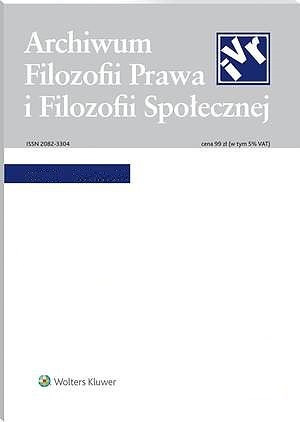Narracyjność języka prawniczego w procesie tworzenia prawa
Narrativity of Legal Language in Law-Making Processes
Author(s): Paweł SkuczyńskiSubject(s): Law, Constitution, Jurisprudence, Philosophy of Law
Published by: Stowarzyszenie Filozofii Prawa i Filozofii Społecznej – Sekcja Polska IVR
Keywords: legal narrative; legal argumentation; legal language; law-making; professional self-governments
Summary/Abstract: The paper concerns the relation between argumentative and narrative features of legal texts and the question whether legal texts can be perceived as narrative texts. A narrative text is understood as transferring a story to the recipient through a given medium. The story, being the content of a narrative text, constitutes a specific way of manifesting the plot. The latter is a sort of internal logic of the story. The very same plot might be told in many different ways. Hence, the narrative text does not depict events directly, but through a story that requires a storytelling agent – the narrator. Certainly, there are different kinds of narrators, who can be more or less exposed within the text. In consequence, there are at least five positions concerning the relation between argumentation and narration in law: 1) sceptic – narration is a negation of the reasonableness of law; 2) narration is a structure of presentation of facts; 3) narration is a means of rhetoric persuasion; 4) narration is a meta-argumentative structure; 5) narration is a subject of critical analysis as it reveals the identity of an author. The theory of narration is applied to a particular problem of participation of professional self-governments in law-making.
Journal: Archiwum Filozofii Prawa i Filozofii Społecznej
- Issue Year: 22/2020
- Issue No: 1
- Page Range: 66-83
- Page Count: 18
- Language: Polish

